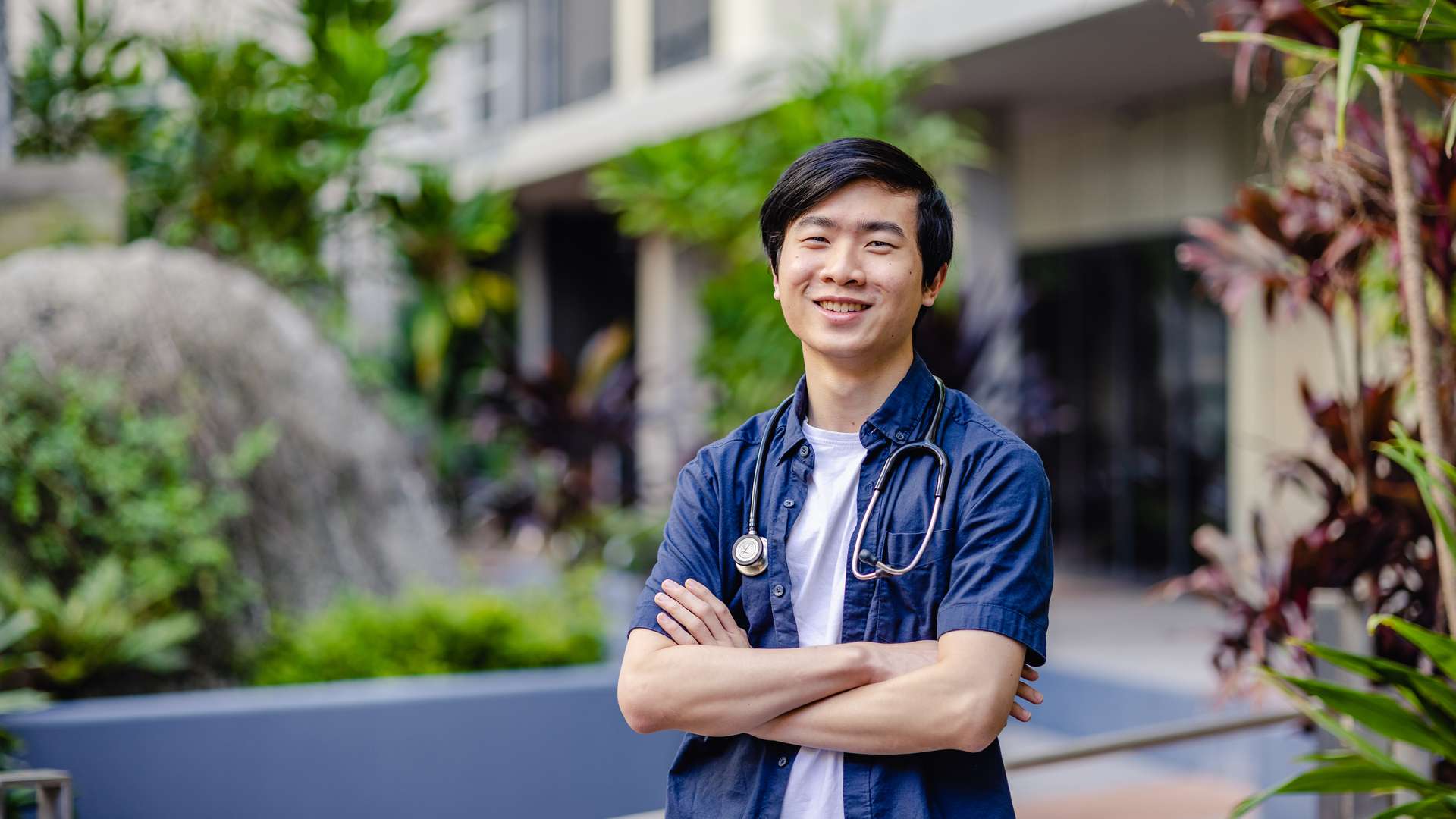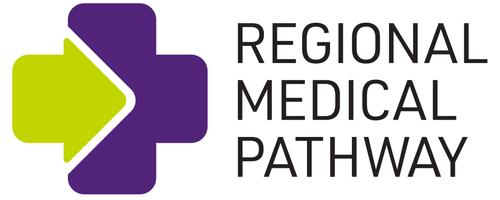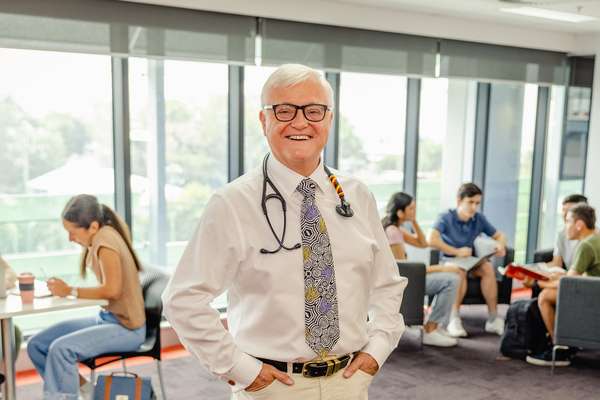
The RMP is a community of educators, mentors, clinicians and advocates committed to improving regional, rural and remote health outcomes by nurturing and inspiring the next generation of medical doctors.
CQUniversity's Bachelor of Medical Science (Pathway to Medicine) articulates directly to the University of Queensland’s Doctor of Medicine (MD)^, allowing you to complete the full seven years of study in the Central Queensland and Wide Bay regions.
Upon successful completion of the UQ Doctor of Medicine and during your intern years, you'll be offered provisional registration to the Australian Medical Council. You will obtain full registration upon successful completion.
The Regional Medical Pathway is designed to train you to be an exceptional intern. Your medical career provides diverse career outcomes with numerous specialties available, including becoming a General Practitioner, a Rural Generalist and other specialty areas.
^Upon successfully completing CQU's Bachelor of Medical Science (Pathway to Medicine) within three years and with a Grade Point Average of 5.0 or more.

The Regional Medical Pathway represents true end-to-end training. Explore the two courses that make up the pathway.
Prepare for a career in medicine with this unique pathway program designed to help you enter the University of Queensland's regionally based Doctor of Medicine Program.

The UQ Doctor of Medicine is the postgraduate component of the Regional Medical Pathway. It will provide you with a world-class medical education. You'll gain hands-on experience preparing you to work in any global setting.

You'll study the Bachelor of Medical Science (Pathway to Medicine) on campus at either:
Once you articulate into the Doctor of Medicine (MD), you will then continue living and learning in Central Queensland (Rockhampton) or Wide Bay (Bundaberg). You'll have the opportunity to move to Gladstone (CQ) or Hervey Bay (WB) in the last two years of your MD studies.
The Regional Medical Pathway aims to attract and retain regional, rural and remote medical practitioners, giving you the opportunity to live and learn in these regions full-time during your tertiary studies.
To apply for CQU's Bachelor of Medical Science (Pathway to Medicine), you'll need to meet the course pre-requisites, complete the University Clinical Aptitude Test (UCAT ANZ), submit a course application via the Queensland Tertiary Admission Centre (QTAC) and complete the Multiple Mini Interviews.
The University Clinical Aptitude Test (UCAT ANZ) is an admissions test used by the UCAT ANZ Consortium of universities in Australia and New Zealand for their medical, dental and clinical science degree programs. The test establishes applicants’ abilities in the following areas:
Students do not require medical knowledge to undertake this test.
Registration cost was $325 in 2024. This needs to be paid on registration (in Year 12). Please refer to the UCAT ANZ website for more information.
UCAT bursaries may be available through UQ, but conditions apply.
The UCAT ANZ is a computer-based test that is provided in person in Pearson VUE test centres. Test centres are provided in Bundaberg and Rockhampton. Learn more, including other site locations, on the UCAT ANZ website.
A Multiple Mini Interview (MMI) is a multi-station, multi-interview format where applicants rotate through a range of interview stations with multiple interviewers. If you're attending the MMIs, you'll receive a score for each interview station, which contributes to the overall admissions rank. Scores are reviewed by an MMI Results Board.
The overall UCAT ANZ score is used to determine a ranked interview list for MMIs. The minimum UCAT ANZ score the University requires will vary each year, determined by the performance of all applicants competing for a place in the Pathway to Medicine course. Therefore, the UCAT cut-off score cannot be determined in advance.
If you're preparing for an MMI, it's best to prepare in the same way you would prepare for any interview. An understanding of your self, motivations, values, the way you respond to situations, and an understanding of the world around you is helpful.
There are no right answers. You'll be assessed on how you respond rather than on specific content.
It is not recommended that you pay for professional training as it often results in a more rigid, robotic, and coached response and is not a true reflection of who you are as an individual. Bringing your true selves to the interviews rather than a set of pre-prepared responses is the best approach.
The higher the ATAR score, the more competitive you will be when applying for the Bachelor of Medical Science (Pathway to Medicine). The ATAR score makes up 25 per cent of the final offer score when assessing an application.
To be considered for a place in the Bachelor of Medical Science (Pathway to Medicine), the minimum ATAR for eligibility to the RMP is 95.00.
Bachelor of Medical Science (Pathway to Medicine) has several adjustment schemes available. As an applicant, you'll be eligible for a maximum of five adjustment points.
You may be eligible for this scheme if you are applying for CM17 Bachelor of Medical Science (Pathway to Medicine) and have successfully completed specific Year 12 subjects or university-level study while at school.
The number of ATAR/rank adjustments you can receive depends on the subjects/units you complete. Adjustments will be applied automatically for eligible subjects, including:
If you have completed SUN units, you will need to provide extra details in your QTAC application and upload a copy of your transcript to the supporting documentation section.
If you are applying for CM17 Bachelor of Medical Science (Pathway to Medicine) and live in an eligible rural location, you may apply for the following:
To check your eligibility for the rural access scheme ,visit the Health Workforce Locator Tool and select the Modified Monash Model (2019) and click on the “Find Address” box and enter your full address.
To identify as a resident of Central Queensland or Wide Bay applicants must submit an application and supporting documentation to demonstrate residence of at least 10 years cumulatively or any 5 years consecutively in Central Queensland and/or Wide Bay since birth.
Central Queensland and Wide Bay means the geographic area defined by the following Local Government Areas, which comprises the designated catchment of the Regional Medical Pathway (or view the Central Queensland and Wide Bay Boundaries map for visual reference):
Applications for the Rural Access Scheme are administered by QTAC. When you apply for CM17 Bachelor of Medical Science (Pathway to Medicine), you'll need to provide documents that prove your rural background together with the QTAC cover sheet for the Rural Access Scheme.
The types of documentation may include supporting letters from: a school, university or workplace, health care professional, pharmacist or government agency stating your residential address during the period of enrolment/employment or engagement in that service.
Supporting documents may also include: other documents to verify the duration of residency such as utility bills or bank statements showing your (or your family’s) address at the time of issue, and dates/length of time of residency. These documents can be in your parents’ name(s).
In addition to the Rural Access Adjustment Scheme, you may be eligible for the Central Queensland/Wide Bay School Adjustment Scheme. As an applicant for CM17 Bachelor of Medical Science (Pathway to Medicine), you could be eligible for 3 adjustment factors, if:
Applications for the Central Queensland/Wide Bay Schooling Adjustment Scheme will be administered by QTAC. When you submit your application for this course via QTAC, the QTAC team will be in contact to confirm your eligibility and to invite you to apply for the Scheme. They'll also inform you of the evidence you should provide (note, evidence will include a letter from the School where you have completed Years 11 and 12).
The geographic areas of Central Queensland and Wide Bay are as defined under the Rural Access Scheme.
Start Uni Now (SUN) offers high school students the opportunity to complete university units while still in high school. Completing an approved SUN unit/s from the Bachelor of Medical Science (Pathway to Medicine) will provide you with a maximum of 1 ATAR/ rank adjustment when applying for the Bachelor of Medical Science (Pathway to Medicine).
If you’re successful in gaining admission into the Bachelor of Medical Science (Pathway to Medicine), you may be eligible for credit transfer for successful completion of specified SUN units.
Please note the total adjustments an applicant is eligible to receive for CM17 Bachelor of Medical Science (Pathway to Medicine) is capped at 5 ATAR positions or 5 selection rank improvements for all eligible adjustment schemes.
A Bonded Medical Place aims to provide more doctors in areas of workforce shortage in regional, rural and remote Australia. 28.5% of the Medical Pathways cohorts are required to be on the Bonded Medical Program.
The Bonded Medical Place requires a return of service obligation throughout candidates’ medical careers. When applying via QTAC, you may list a Bonded Medical Place as a preference as part of your QTAC application, or you may opt-in during the first half of your first year of study.
Bonded medical places are available for CQU's Bachelor of Medical Science (Pathway to Medicine).
The Aboriginal and Torres Strait Islander Admission Pathway into CQU's Bachelor of Medical Science (Pathway to Medicine) is open to secondary school graduates and mature-age students.
It's ideal if you identify as an Aboriginal and/or Torres Strait Islander person and you're interested in a career in health. You must also meet the Aboriginal and Torres Strait Islander Admission Pathway eligibility criteria outlined in the Entry Requirements section of the Bachelor of Medical Science (Pathway to Medicine) page.
I chose this course because I would be able to stay at home and not move away, so I would have the support of my family when completing the degree. The second reason was that I would be able to study in Rockhampton, which is Darumbal land. Darumbal is the tribe that I am from.
Jay Warcon
Bachelor of Medical Science (Pathway to Medicine)
The UQ Doctor of Medicine has a graduate entry pathway. If you don't meet the requirements for CQU's Bachelor of Medical Science (Pathway to Medicine), or you are unsuccessful in applying to this course, you may undertake another undergraduate degree and apply to this pathway in your final year of study (or beyond).
If you're considering the graduate entry pathway, you will need to ensure you have studied the relevant subjects (units) in your undergraduate degree in order to be eligible to apply for the Doctor of Medicine. Learn more about the subject prerequisites and recommended programs offering these subjects.
If you are applying for UQ's Doctor of Medicine via the graduate entry pathway, you'll need to sit the GAMSAT test in the year of application.
If you've completed a key degree, or are in your final year of a bachelor's degree (or equivalent) and have sat GAMSAT, apply for the Doctor of Medicine (MD) through the Graduate Entry Medical School Admissions System (GEMSAS).
CQUniversity Australia is a trading name of Central Queensland University
ABN: 39 181 103 288
RTO Code: 40939
CRICOS: 00219C
TEQSA: PRV12073